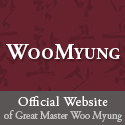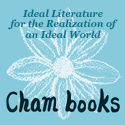Ki-hyun Song / Entrepreneur

Ki-hyun Song is CEO of Sangji Menad, a Korean French joint venture that provides world-class technology in civil engineering construction. Even before he started his business, starting from his early 40s, he was already they envy of others. He received a high salary, owned apartments in Gangnam, and recovered all of his hometown farm and land that had once been lost. Anyone who has worked with him remembers him as a person who works extremely hard even in the lowest position. That’s why he was always given new opportunities and the money followed. But this is where his anguish begins: money could not resolve the emptiness in his mind. Because of this, he started to meditate. Now he talks about his life, thoughts on money, and happiness.
President Of Strong, Small And Medium-sized Enterprises With No Debt And No Recessions
Ki-hyun Song has been running a construction company for 18 years, which he says has had a lot of ups and downs. There are three “no’s” in his company. No debt, no bankruptcy, no recession. People often ask him. “How do you make so much money?” “How do you do business without debt?”
“I don’t think there’s profit just by pursuing money. When I worked hard at my job, money just followed the work. If anyone works as an owner, the company has no choice but to back him up. And with that help you’re going to make money. Money is simply the result of the process of my life.”
For those who want tips, they are usually very disappointed. His answer is always the same one: “Just work hard.” That’s because that’s how his life was.
He was born in 1957 as the youngest child in a small town in Mt. Jiri in Namwon, North Jeolla Province with only four elder sisters. His father made some money from the chicken feed business, but he sold it all to support his wife in her battle against stomach cancer and so became a poor peasant. In the hopes of getting a job and gaining momentum quickly, Ki-hyun Song joined POSCO right after graduating from his public high school at the age of 18. However, he had to suffer a lot of invisible discrimination due to his academic background, through the form of wages and promotions. Deciding to overcome the situation by himself rather than complain about it, he slept four hours a day and studied for work and school. He memorized entire English reference books and acquired five first-class certificates all while studying college courses on his own.
He went to work an hour earlier than others, prepared for the day’s work, and did not leave work until two or three in the morning. He did all the chores that others didn’t want to do. He handled what was given to him with responsibility no matter what, and even silently helped his colleagues. Because of that he was helped by his neighbors and received a decent salary.
I Had Achieved What I Wanted, But I Didn’t Know Why I Still Felt Such Futility
In 1984, he decided that he needed a college diploma. Since he was married, logically thinking, he had to maintain a stable job. But he actually really wanted to solve the “unlearned” problem. After going to college and studying hard, at the same time as his graduation, he took and passed the state-run Korea Advanced Institute of Technology (KAIST) public recruitment exam, evening coming in first place.
At the age of 31, with his mind set, he joined the company along with the other new recruits who were in their twenties. Recognizing his sincerity and ability, the company made an extraordinary exception for him: three years after joining the company, he was promoted to be a manager. With the support of the company, he was able to finish graduate school and studied in France at the National University of France (LCPC).
In 1992, in his mid-30s, he became independent and formed a new company and partnership. His business was quite prosperous. He made money and moved to an apartment in Gangnam. He was able to pay off all the debt and recover the family’s farmland in the countryside. He had a stable company, devoted wife, and kind children that had grown up well. But he felt he wasn’t happy. There was a surge of emptiness. Due to his indigestion, chronic fatigue, and insomnia, he had to secretly seek a psychiatrist.
“That ‘great’ feeling I got after making money was too fleeting. I had thought that if I made money after graduating from school and attained financial freedom I would be very happy, but I wasn’t. The things I had dreamed of had come true, yet why wasn’t I happy, and why didn’t I want to make more money? I think I knew that even if I were to make much more money, I would feel this same emptiness.”
It was a life of constant challenge, but there was nothing more he wanted to do. He knew that wealth and honor were the same as a rainbow: beautiful from afar yet once you chase after it, you arrive at nothing. At that moment, questions about existence that he had since he was young came to mind.
‘Finding Me’ Became My Top Priority
“The questions after losing my mother as a child remained so intense. Who am I? Where did I come from? Why am I living? I once thought about entering the Buddhist priesthood. But because I was the eldest grandson and head of the family of the sixth generation, I couldn’t immediately do that due to the given conditions. Those questions would just have to be kept on the back burner until one day the time would come to address them. ‘Ah, I wasn’t born to make money ..’ This thought grew deeper.
One day, he saw an article about Meditation in the newspaper and was convinced he could find an answer. So in 2001, he spent two weeks meditating and looking back on his life. He boasted that in his own way he had lived a good life, but essentially it was all for himself. He felt ashamed and he thought, “How many people would have had a hard time because of this ‘proud me,’? I wasn’t confident to go back and live with that mindset.” He decided to give up everything he had accumulated, and at forty-five years old he resigned. He resigned to regain his true mind.
“The people around me wondered if it was necessary to go to such means. But I believed that more important than anything was “finding ‘me’”. And I had the confidence to make something out of nothing. Even if I threw everything away, I could start fresh. I was determined enough to think that I would even start from a street food stand if I had to.
In the third month meditating and away from the company, the company asked him to come back. His vacancy was too big. But he was gaining ‘bigger things that couldn’t be converted into money’ from his meditation training. The unresolved questions from childhood, the questions of existence were being answered. And the cause of the illnesses in his body and mind was also distinctly clarified.
“Our family history had illness and also I treated my body badly so my body suffered. But now I’ve never been so healthy since the day I was born. I would have an endoscopy every six months, and now I don’t have to.”
If There Were No ‘Mine,’ Everything In The World Would Be Mine
Above all, it was like a revolution that made me think that my company and money were not mine. Of course, I thought it was because I had done well, but when I threw away those thoughts, it wasn’t like that.
“Everything was possible because of the staff, the clients and the people around us. The world helped me make money. I was given money and wealth to use for the world. I came to know that if I think energy and money is mine, it stays only within me, but when I put them into the world, it becomes the energy of the world.”
When I give, the world fills it up for me again, and that is the flow of nature. “I’m a member of the world, and it’s meaningful when I live as part of it,” he says.
“When you’re in a business, you have to share the benefits with your partners and employees to do better. You have to help them in times of need and find opportunities to grow with them. Money is a thing you will never get when you step on others.”
His mindset has changed when it comes to dealing with the staff. He believes he is where he is because of them, and so he feels more grateful. For those employees who want to study at university, he provides financial aid for tuition. For those employees who want to practice the meditation, he pays for their meditation fees.
“To throw away minds of money is to throw away your obsession with materialism. To me, throwing away minds of money is to run the company well and bring maximum profits to the world. When I grab it for myself, it is worthless. Now use it for the people of the world.”
The Three Principles Of Work And Life, As Ki-hyun Song Says
✽ Poverty is a great teacher.
I would have quit my job countless times if I had been financially affluent. But as the eldest son of a poor family, I had to endure even if it was hard. Poverty has been the buttress. I was able to persevere and overcome the responsibility of being responsible for my family whenever I faced difficulties.
✽ Reasons to empty your mind even more in times of financial difficulty.
If you want to make money, you have to work harder and move around, but most of the time, people worry and try to find easier ways to make money. The reason why I haven’t thrown away my minds of money is because I have pride. With that pride, I can’t lower myself. When the conceptions of high and low is cleansed from one’s mind, one can work hard anywhere. Then you’ll be given a chance. This is possible if you meditate.
✽ Let’s not overdo it.
Never go into business with debt. I’ve been able to meet the conditions without undue strain. Perhaps that’s why I’ve been running the business smoothly without difficulty. What’s fortunate is that while doing business, I never couldn’t pay the employees on time and never failed to give them their bonuses on time. For a company to grow rapidly and just become large externally does not seem to be a good thing.
Source: www.meditationlife.org














